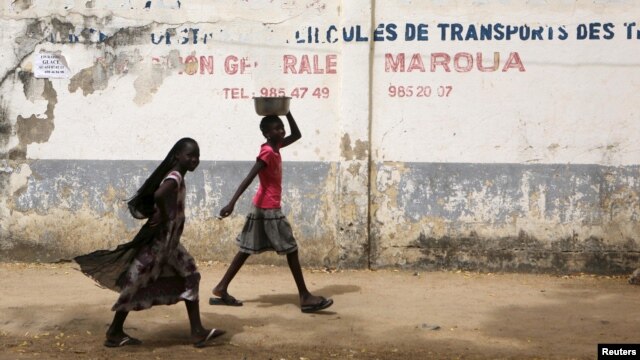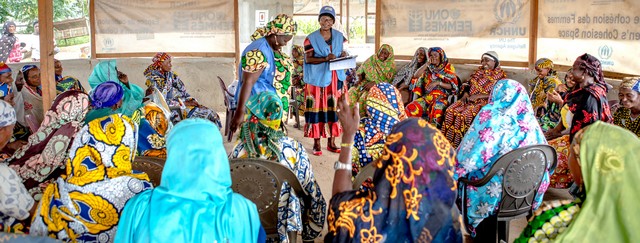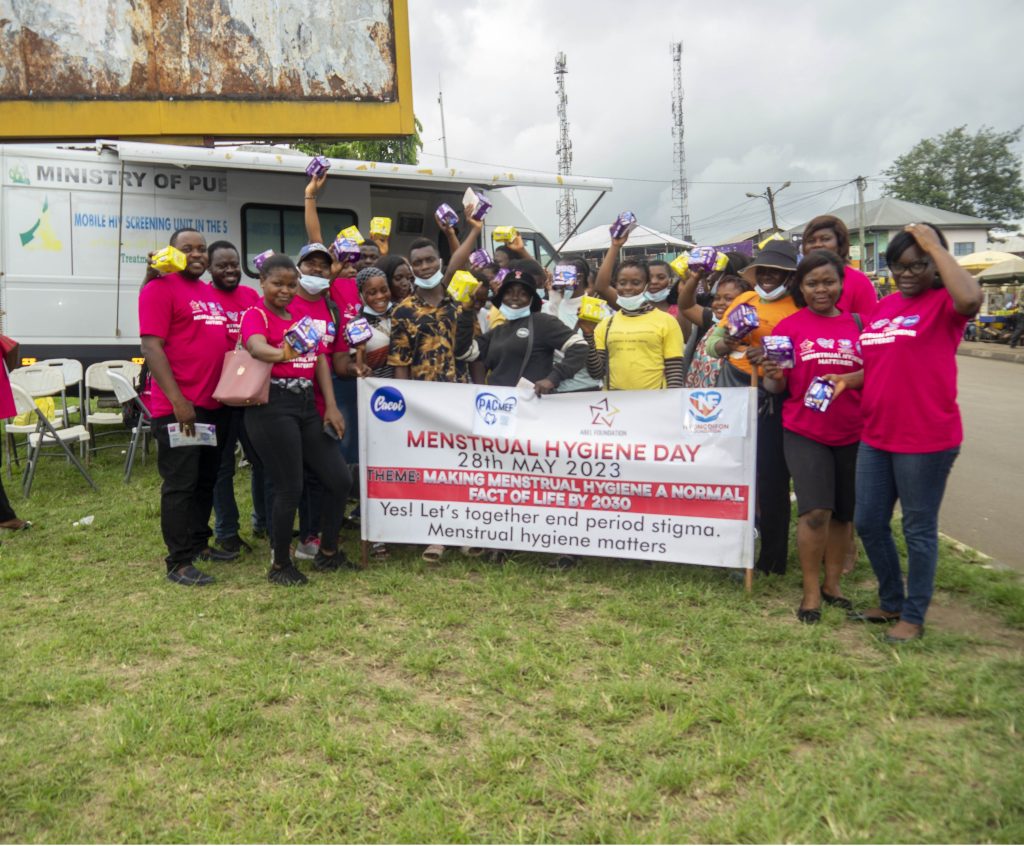
FILE – Girls walk on a road in Maroua, Cameroon, Menstruation remains stigmatized in Cameroon and the cost of sanitary pads out of reach for many woman and girls.
Cameroon celebrated World Menstrual Hygiene Day on Saturday with donors and health workers distributing reusable tampons to hundreds of poor girls displaced by terrorism and the crisis secession of the country. Some girls said this was the first time they saw tampons. In addition, sensitive groups work to convince the community to stop discriminating against girls during their period.
Hundreds of girls displaced by the secession crisis in the English-speaking regions of western Cameroon have received reusable tampons, pants, soap and buckets in schools and public spaces. plus in the capital Yaooundé.
The gifts, known as “dignity kits”, were distributed by funding agencies and governments on Saturday as part of the World Menstrual Hygiene Day activity to help women and children. girls keep good hygiene. Among the hundreds of girls who received dignity kits was Ernestine Mbih, 14, who said she had been displaced by separatists from Babanki, a town in the English-speaking Northwest region of Cameroon. Mbih received speech kits on behalf of the girls.
“At the end of each month, we wonder where we will get the money to buy [sanitary napkins], but now, with this towel that we will use for a year, we are very happy,” he said. . declare. “It will reduce the risk of some girls getting pregnant when they go out to buy towels. So we’re grateful and grateful that they brought us the most essential things we needed. than women and young girls.”
Mbih said some girls go into prostitution before their monthly cash flow starts to bring in about $3 to buy tampons. Coordinator of the International Menstrual Hygiene Coalition Welisane Mokwe Nkeng said girls and women displaced by the separatist crisis in Cameroon live in desperate conditions, lack tampons and need education. to manage its own rules.
“Menstrual hygiene education is a secret topic and many people (girls and women) do not know how to manage their periods, so education is very important,” she said. “Secondly, we do this because of the unorthodox methods young girls are using to manage their time, especially during this time of displacement. Many of them use grass, dirty clothes, leaves and other things for padding, so we feel the need to give them a healthy option that will restore them. their intimacy as well as their dignity.”
Nkeng was speaking from Adagom, a Nigerian town located 60 kilometers from the border between Cameroon and Nigeria, where his coalition distributed medical kits to displaced Cameroonians.

Good menstrual hygiene management (MHM) plays a fundamental role in enabling women, girls, and other menstruators to reach their full potential. The negative impacts of a lack of good menstrual health and hygiene cut across sectors, so the World Bank takes a multi-sectoral, holistic approach in working to improve menstrual hygiene in its operations across the world.
Cameroonian officials report that many Cameroonians discriminated against girls and women during their period. The government says men force their wives to sleep on the floor during their periods because they mistakenly believe menstruation is bad luck.
Josephine Nsono, a gender expert in Bamenda, the capital of Cameroon’s English-speaking northwest region, said the government and partners needed to convince communities to stop discriminating against girls and women in the era of the crisis. Surname.
“This girl was bleeding a lot and her dress was dirty and people saw it. Instead of getting attention and helping her properly, people laughed and it became a problem. should be so stigmatizing that someone ‘feels so embarrassed instead of feeling very worthy.’ I’m a woman and I’m going through a natural phenomenon,’ she said. “Some men just overwhelm their wives. them because they don’t try to understand what menstrual hygiene is.”
Cameroon says it is building adequate sanitation facilities in schools and public places so that women and girls do not have difficulty controlling their periods. According to the United Nations, World Menstrual Hygiene Day is celebrated on May 28 because the menstrual cycle lasts 28 days on average. He said that May was chosen because it is the fifth month of the year and women and girls menstruate an average of five days a month.
The United Nations says the day is meant to promote the idea that menstruation is a biological process so that girls and women can menstruate without fear or shame, and without more trauma. The day also raises awareness about the inability of the poor to pay for menstruation.



Hi, this is a comment.
To get started with moderating, editing, and deleting comments, please visit the Comments screen in the dashboard.
Commenter avatars come from Gravatar.